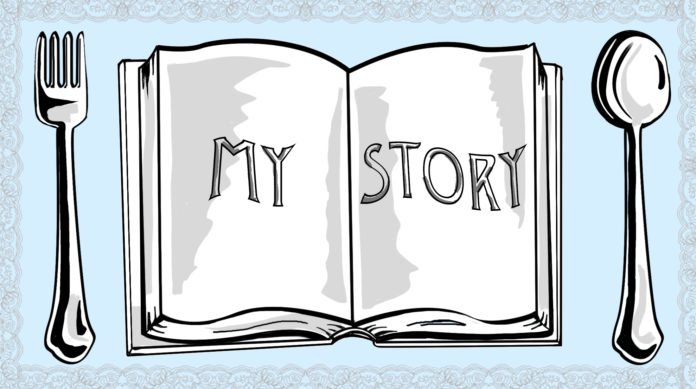Turkeys and mashed potatoes and stuffing, Oh My!
The holiday season is filled with family traditions and friendly events, many of which revolve around the consumption of large quantities of food. Between copious amounts of Halloween candy, Thanksgiving dinners and Christmas feasts, food is incredibly plentiful from October to January.
For many, these celebrations are a time to enjoy the cuisine and company of the ones they love. However, for one of the 10 million females and one million males in the United States that currently struggle with eating disorders, according to Eating Disorder Hope, a resource for those suffering with eating disorders, the holidays can be a stressful time simply because of the focus on eating, and a lot of eating at that.
The National Eating Disorders Association reports that the holidays can affect those with different eating disorders in various ways. For example, if you are struggling with anorexia nervosa, you may be overcome with anxiety about having to sit with your family or friends for long periods of time while they eat and may be worried about coming up with excuses for why you’re not eating. In contrast, if you are struggling with binge eating disorder or bulimia nervosa, holiday meals present an ample time to consume as much as you want, which can lead to guilt and shame for those with binge eating disorder, and purging or throwing up for those with bulimia.
While these are only a few examples of the burdens that come with coping with an eating disorder around the holidays, it is important to know that if you are struggling this winter season, you are not alone in what you are going through. Eating Disorder Hope states that four out of 10 Americans have or will experience an eating disorder in their lifetime, or know of someone who is dealing with an eating disorder.
Although the holidays can be rough, there are ways to cope with being around large amounts of food and large groups of people eating. Mirror Mirror, an eating disorder treatment website, suggests a few options for surviving the holidays. If you are in treatment for an eating disorder or have people in your life who know what you are going through, reach out and share your concerns and uncertainty. You can ask them to take as little or as active of a role as you would like –– from nudging you under the table to remind you to have another bite of turkey, or spending a few hours with you after a big meal to make sure you don’t purge, support from a loved one can go a long way.
If you have not discussed your eating disorder with anyone that will be with you during the holidays, there are other ways to make it through. Planning ahead for what you will and won’t eat can be helpful, especially for those that struggle with simply wanting to control what they put in their body. Mirror Mirror also suggests that instead of focusing on food, focus instead on your family and the holiday itself. At Thanksgiving, for example, if you find yourself worrying that you’re eating too much, try and shift your thoughts to something more positive, such as the people around you, or the football game on TV or all of the Black Friday sales you’re going to score at the next day.
While a majority of Americans do not have eating disorders, there are still ways you can help someone you know who does have one of these conditions, as well as ways to avoid pushing them further into their disorder. Don’t comment on how much someone is eating, or how little someone is eating, regardless of whether or not they have an eating disorder. If they want to indulge, let them, and if they’re quietly munching on a roll and nothing else, don’t call attention to it in front of an entire table of people. If you’re truly concerned with someone’s eating habits, pull them aside and say something to them in private, not in front of a room full of people.
If you notice a family member or a friend that is isolating themselves before, during or after a meal, spend time with them. Although isolation is a key factor in eating disorders, it is also prevalent in other mental illnesses such as depression or bipolar disorder. Simply being present and being there for someone you love can make a huge difference in their holiday experience.
Above all, it is important to remember that if you have an eating disorder and you do end up purging, or you don’t eat nearly enough or you eat too much, it is OK. Eating disorders are not cured overnight, and as hard as you may try to make it through the holidays, sometimes it’s easier said than done. The crucial part is that you tried, and that you are actively seeking treatment and assistance, rather than dealing with your condition alone. You are not alone, especially during times of giving thanks and spreading love.






